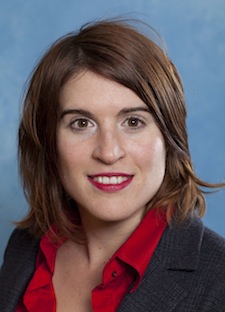If you have recovered from the mental impairment caused by the really awful governance dancing, it’s time to get back to the serious discussion about the narrowing onshore/offshore cost gap, and the diversity issues in sourcing…. so let’s visit the final part of our recent interview with Madelein Smit, outsourcing head at the global logistics giant, CEVA Logistics…
Phil Fersht (HfS): Madelein, in our previous discussion, you talked about a watershed period for sourcing arriving in 2013, with the narrowing cost differential between onshore and offshore talent. Do you think that is going to have a noticeable impact on how a company like yours is sourcing its BPO?
Madelein Smit (CEVA Logistics): We are in a very cost-driven environment, so we will keep sourcing in a way that suits our need. One thing that has happened over the last three years in the accounting space, five years now in the IT space, is that we have built up valuable partnerships with our partners. And I do think we are at the point where we have moved beyond labor arbitration in both of our agreements, and are driving much higher value-add. I don’t think wage arbitration will impact this year in existing engagements in which there is active engagement by both provider-side and buyer-side management. But I do think that for people considering doing in-house shared services or moving to an outsourced solution for what still remains onshore, the business case will become harder and harder to fill, and the value-add will prove harder and harder for an outsourced solution.
Phil: So do you see that the buy-side will evaluate offshoring against just getting cheaper talent in-house? And do you think providers will broaden their customer options to deliver more services from onshore and nearshore locations. How do see the dynamics evolving here?
Madelein: I think both, and this is exactly my point. If the providers don’t come up with those alternative solutions, I think it will be major pickings in the pipelines for new deals. They definitely have to change the way in which they sell, and work with sourcing managers to help them understand what that value-add might be. With F&A, if you put a pure cost layer on the table, I think it’s 50/50.
Phil: You’ve also been quite vocal on the topic of diversity. Would you please talk a bit about some of the conversations you have been having on the role of women in sourcing and some of the issues going on there?
Madelein: Absolutely…I find it fascinating. Having grown up in Africa myself, in a very male chauvinist-dominated culture, I find it very interesting to see India going through a journey similar to what Europe went through maybe 40 years ago and what Africa went through 10 years ago, or is still in the process of making. There are still basic social inequalities among people. I know this sounds a bit overly dramatic, but I do believe in equal rights for all people, and I think that we have the opportunity to do something good in the world through our work. So, this is one of the areas that I demand of my providers. I demand that they have a diversity program in place, and I regularly discuss with them what they do retain, motivate and stimulate women in places like India. I also discuss with them issues like gender or sexual preference in places like Eastern Europe, where that is perhaps a more relevant topic today.
It is very interesting to see what these large companies are doing. The leadership of NASSCOM, which is made up of all of the big providers in India, so among them they employ close to a million people or more…all of these providers recently signed an agreement that they will ask all of their suppliers what they are doing about diversity in India. Think about the security companies, the facility companies, the catering companies. The trickle-down effect of this is enormous, and has an enormous impact on the transformation of the culture and the rights of people and the development of people.
Phil: Do you think part of the problem is we live in an industry that is obsessed with cost and delivery, and it seems to override all other issues including diversity?

Madelein Smit is VP Outsourcing at CEVA Logistics
Madelein: Yes, but I think it’s like all business. You know, capitalism can be a force for evil or a force for good, as we have seen with the recent demise of some high profile banks, and with the work some of the big players like Unilever are doing in the world for the Green agenda, the Corporate Social Responsibility agenda. I think there is a huge opportunity for good. And I think that we take our old purses to work every day, and if there’s something in our power to do good, I believe we should.
Phil: That was a great answer. Thank you so much for sharing some of these views and ideas and feelings with us today. And we are all eagerly anticipating your next performance at dreamSource. Maybe the Harlem Shake?
Madelein: We’ll just have to wait in anticipation 🙂 See you in New York!
Madelein Smit (pictured) is VP Outsourcing at CEVA Logistics and will be leading the session entitled “The Science of Performance Management” at the forthcoming dreamSource summit in Westchester New York April 30th-May 2nd. Click here for more details.
Posted in : Business Process Outsourcing (BPO), Captives and Shared Services Strategies, Cloud Computing, Finance and Accounting, Global Business Services, HfSResearch.com Homepage, Outsourcing Events, Outsourcing Heros, Sourcing Best Practises, Talent in Sourcing








[…] Research Services « Outsourcing Executives: What’s your career narrative? The dreamSource countdown continues… Meet Mads (Part II) » […]